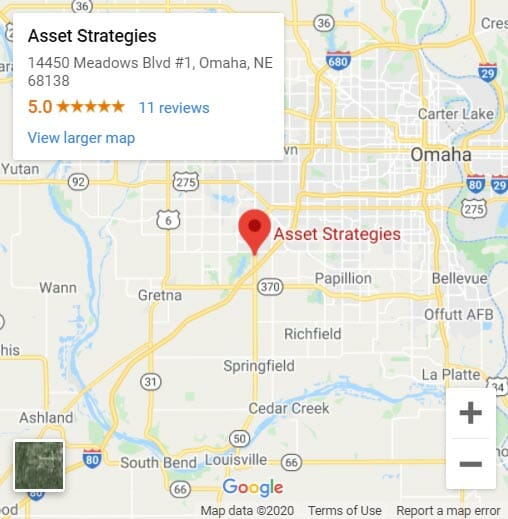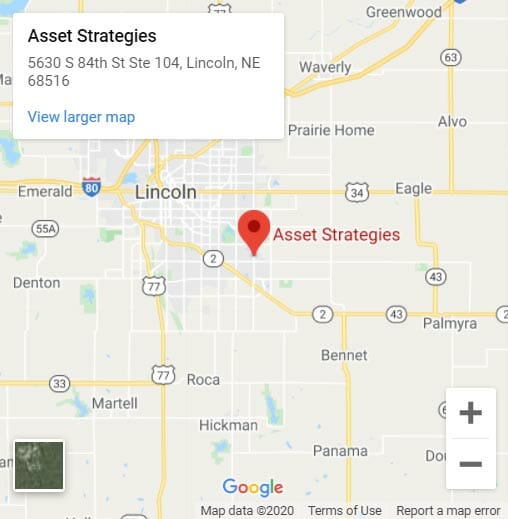At Asset Strategies, we believe a 401(k) rollover can be a key strategic financial move. It involves transferring funds from one employer-sponsored retirement account, typically a 401(k), into another tax-advantaged retirement account, such as an Individual Retirement Account (IRA) or another employer’s 401(k) plan. This process offers individuals greater control over their retirement savings, access to a broader range of investment options, and the potential for increased flexibility and estate planning. In this comprehensive explanation, we’ll delve into the mechanics of 401(k) rollovers and highlight their significant importance in achieving a secure and well-managed retirement.
- Enhancing Investment Options:
One of the primary advantages of a 401(k) rollover is the expanded selection of investment options. Many employer-sponsored 401(k) plans offer a limited menu of investment choices. Rolling over your funds into an IRA allows you to access a broader range of investments, including stocks, bonds, mutual funds, exchange-traded funds (ETFs), and even alternative investments like real estate investment trusts (REITs) and precious metals.
- Control and Management:
By performing a 401(k) rollover, you gain greater control over your retirement savings. As an employee, you are a participant in your employer’s 401(k) plan. The employer maintains control of investment options and plan structure. As an IRA account holder, you are the owner and are in control of that plan. In an IRA, you can actively manage your investments, adjust your asset allocation as you see fit, and react to market conditions or changes in your financial goals. This level of control can be especially valuable as you approach retirement and want to ensure your investments align with your risk tolerance and income needs. Many times, employees make investment choices in their 401(k) plans and those choices go unchanged for decades. Using an investment advisor to manage your 401(k) rollover can eliminate this problem.
- Simplicity is Good:
Throughout their career, individuals may accumulate multiple 401(k) accounts from different employers. It is not unheard of to have 3-6 old 401(k) plans sitting out there. Rolling over these accounts into a single IRA or consolidating them into a new employer’s 401(k) plan can simplify your financial life. Managing one or a few retirement accounts is generally more straightforward than keeping track of several separate accounts.
- Estate Planning Benefits:
IRA accounts often provide more favorable estate planning options compared to 401(k) plans. For instance, beneficiaries of an inherited IRA have the opportunity to “stretch” the distributions for up to 10 years, potentially allowing the funds to grow tax-deferred for a longer period. This can be a valuable strategy for passing on wealth to the next generation while minimizing the tax impact. As always, specific tax guidance should be directed to a licensed tax professional.
- Flexibility and Withdrawal Options:
At Asset Strategies, we believe having control and options with your money is optimal. In an IRA, you might have more flexible withdrawal options compared to a 401(k) plan. Some 401(k) plans have restrictions on withdrawals, especially for individuals still employed by the sponsoring company. With an IRA, you may have more control over when and how you take distributions, which can be advantageous in retirement planning and managing tax liabilities.
- Avoiding Penalties:
If you leave a job and decide to cash out your 401(k), rather than roll it over into an eligible retirement account, you could face penalties. If you’re under 59½ years old, you might incur an early withdrawal penalty of 10% on top of income taxes. Rolling over the funds to an IRA or another qualified retirement account helps you avoid these penalties while preserving your savings for retirement.
- Portability:
A 401(k) rollover provides portability, meaning your retirement savings can move with you when you change jobs. Instead of leaving your funds behind in an old employer’s plan, you can take them with you and continue to manage them according to your financial goals, risk tolerance, and investment preferences.
- Tax Efficiency:
When executed correctly, a direct rollover from a 401(k) to an IRA can be done without incurring any taxes. This maintains the tax-deferred status of your retirement savings. You’ll only pay taxes on withdrawals when you take distributions in retirement, potentially at a lower tax rate if your income is lower during retirement. At Asset Strategies, we make this process simple and easily manageable in your busy schedule.
- Financial Planning Opportunities:
A 401(k) rollover can be part of a broader financial planning strategy. It allows you to align your retirement savings with your overall financial goals, risk tolerance, investment strategy, and estate planning objectives. The financial advisors at Asset Strategies can provide guidance on how a 401(k) rollover fits into your comprehensive financial plan.
- Streamlining Retirement Income:
In retirement, having a well-organized and consolidated portfolio can simplify the process of generating retirement income. With a streamlined retirement account structure, you can strategically draw from different accounts to manage taxes, satisfy required minimum distributions (RMDs), and create a sustainable income stream that supports your lifestyle.
In conclusion, a 401(k) rollover is a pivotal step in securing your retirement and optimizing your financial future. By moving funds from an employer-sponsored retirement account to an IRA or another qualified retirement plan, you gain greater control, access to a wider range of investment options, estate planning benefits, and the potential for increased flexibility. Engaging in a 401(k) rollover aligns with prudent retirement planning and empowers you to make informed decisions that support your long-term financial well-being.
Contact us today if you have old 401(k) plans that you would like assistance with!







